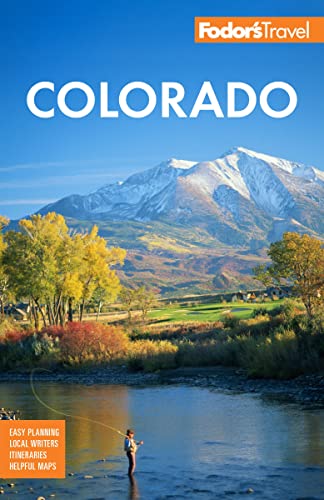Car
Car travel within the urban corridor north and south of Denver can be congested, particularly weekday mornings and afternoons. Weekends, too, can have quite a bit of traffic, particularly along I–70 between Denver and the high mountains. Heavy traffic is not limited to ski season or bad weather. It is nearly a matter of course now for eastbound I–70 to be heavily congested on Sunday afternoons. If you are returning to Denver International Airport for a Sunday afternoon or evening flight, allow more than enough time to reach the airport.
Parking
On-street metered parking as well as by-the-hour garages and lots are fairly plentiful in larger cities. Meters take coins and credit cards almost everywhere.
Road Conditions
Colorado offers some of the most spectacular vistas and challenging driving in the world. Roads range from multilane blacktop to barely graveled backcountry trails; from twisting switchbacks considerately marked with guardrails to primitive campgrounds with a lane so narrow that you must back up to the edge of a steep cliff to make a turn. Scenic routes and lookout points are clearly marked, enabling you to slow down and pull over to take in the views.
One of the more unpleasant sights along the highway is roadkill—animals struck by vehicles. Deer, elk, and moose may try to get to the other side of a road just as you come along, so watch out for wildlife on the highways. Exercise caution both for the sake of the animal in danger and your car, which could be totaled in a collision.
Winter Driving
Modern highways make mountain driving safe and generally trouble-free even in cold weather. Although winter driving can occasionally present real challenges, road maintenance is good and plowing is prompt. However, in mountain areas tire chains, studs, or snow tires are essential. If you're planning to drive into high elevations, be sure to check the weather forecast and call for road conditions beforehand. Even main highways can close. Between Dotsero and Morrison, Traction Law may be in effect in winter, which requires tires to have at least 3/16 inch of tread.
It's a good idea to carry an emergency kit and a cell phone, but be aware that the mountains can disrupt service. If you do get stalled by deep snow, do not leave your car. Wait for help, run the engine only if needed, and remember that assistance is never far away. Winter weather isn't confined to winter months in the high country (it's been known to snow in July), so be prepared year-round.
Car Rentals
Rates in most major cities run about $70 to $95 a day and $490 to $660 a week for an economy car with air-conditioning, automatic transmission, and unlimited mileage. Rates can vary greatly from company to company, so it's worth comparing online. Keep in mind that if you're venturing into the Rockies you'll need a little oomph in your engine to get over the passes. If you plan to explore any back roads, an SUV is the best bet, because it will have higher clearance. Unless you plan to do much mountain exploring, a four-wheel drive is usually needed only in winter.
To rent a car in Colorado you must be at least 25 years old and have a valid driver's license; most companies also require a major credit card. Some companies at certain locations set their minimum age at 21, and then add a daily surcharge. In Colorado, child-safety seats or booster seats are compulsory for children under five (with certain height and weight criteria).
You'll pay extra for child seats ($5–$13 a day), and usually for additional drivers (about $10 per day). When returning your car to Denver International Airport, allow 15 minutes (30 minutes during busy weekends and around the holidays) to return the vehicle and to ride the shuttle bus to the terminal.




